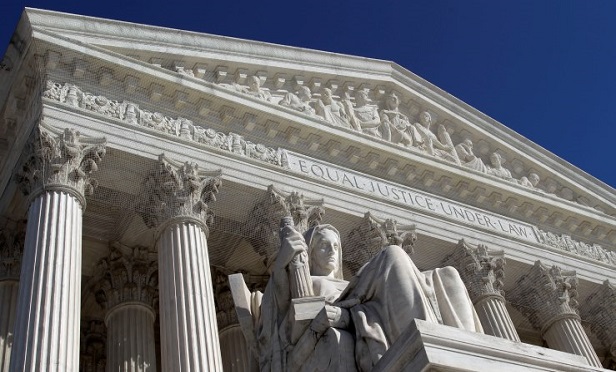

NOT FOR REPRINT
Supreme Court Says SEC In-House Judges Are More Than 'Mere Employees'
By
Tony Mauro
News June 21, 2018 at 10:35 AM
Share & Print

NOT FOR REPRINT
© 2025 ALM Global, LLC, All Rights Reserved. Request academic re-use from www.copyright.com. All other uses, submit a request to [email protected]. For more information visit Asset & Logo Licensing.





